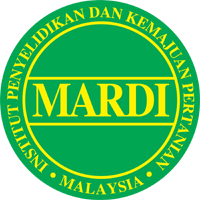S. Yahya and I. Mohd Zainal
Abstract
The project was initiated to design and develop a prototype of young coconut shaping machine. The main purpose of the design was to trim most of the outer husk (green husk) to create an attractive looking trimmed coconut (hexagonal shape) which could easily be cut open. The prototype machine was based on lathe trimming mechanism which consisted of a pair of blades and bottomup holder to clamp the young coconut. During operation, the young coconut was placed vertically at the holder and clamped before the body and shoulder trimming took place. When the fruit rotated, the operator manually adjusted the trimming blades to trim the body and shoulder part of the fruit. The rotational speed used for trimming the fruits can be adjusted accordingly. The prototype machine could trim 95 newly harvested fruits per hour when the rotational speed was set at 400 rpm. The percentage of defect was 5% and the knife had to be changed after every 30 nuts.
Full Text (519 KB)








